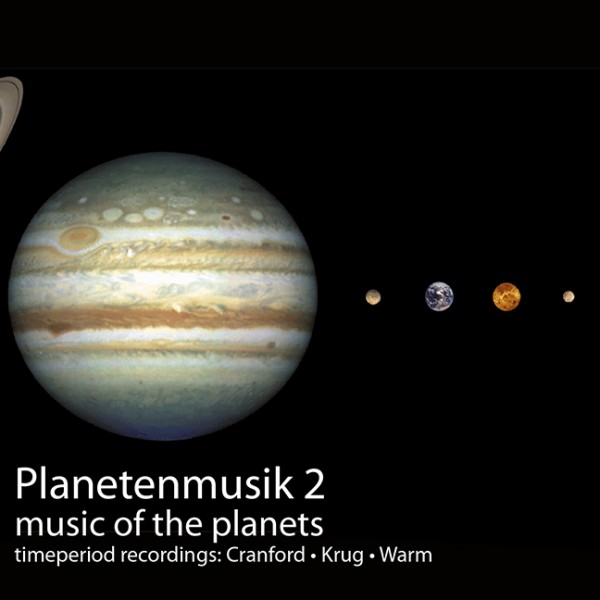Single News
The cosmos in your living room
The idea of the harmony of the spheres has been around for about two-and-a-half thousand years and was developed by Phythagoras. At the start of the seventeenth century, Johannes Kepler gave the idea crucial new momentum in his research into the laws governing the movement of the planets.
Now this thought has been taken further by Brian Cranford, Tobias Krug and Hartmut Warm using mathematical methods of calculation and musical programming and turned into music. NNA correspondent Walter Siegfried Hahn listened to the CD, Planetenmusik2/music of the plants.
LONDON (NNA) – There will be few people who will be able to resist the magic of this CD by Hartmut Warm, Brian Cranford und Tobias Krug for it brings the cosmos into your living room.
It reflects the real relationships between the planets transformed into sound and transposed to be suitable for human hearing. But I would think the music sounds just as beautiful without knowing this – incredibly alien and familiar at the same time.
Over 20 years, Hartmut Warm has developed a science of planetary relationships. The idea of the harmony of the spheres introduced by Pythagoras and developed further by Kepler has been shown to exist by Hartmut Warm using astronomical methods. According to Warm, the musical intervals can be found in the movements and relationships of the planetary trajectories.
His work has become known through his book Signature of the Celestrial Spheres and his lecturing activity. The illustrations resulting from his calculations are even better known and have often been copied.
While Hartmut Warm was doing his calculations, Tobias Krug and Brian Cranford worked on ways to represent these cosmic movements in music. The outcome of the collaboration between the three of them is the present second CD of planetary music.
Transcendental experience
Listening to the CD, I hear miniatures of chamber music with well-known instruments such as the piano, lithophone, clarinet, monochord and organ. They faintly remind me of Satie and Debussy or Stockhausen and Ligeti.
Whereas the first CD, which appeared two years earlier, consists purely of machine-generated sounds, real musicians play on this one on real instruments, such as Masako Ohta (piano) or Heinz Friedl (clarinet). But that does not affect the otherness of the music in any way, on the contrary, the familiar timbres further enhance the transcendental experience.
The artists had to make a number of choices for this CD regarding the planetary relationships themselves, but also period and time compression, pitch and length of the tones, the way the sound is produced and instrumentalisation. As far as time compression is concerned, the piece “Zeitgeist” comprises the period from 21 March 2003 to 19 March 2005 and lasts seven minutes on the CD. Thus one day on this track corresponds to approximately 1.74 seconds.
It would be interesting also to hear other selections and realisations. But I can well imagine that this recording will in future be regarded as a classic. Not just because it is one of the first works to be released which sets real planetary relationships to music but also because it has been selected with such stunning “truth” and subtlety.
Music of the future
Rarely since Bach and the legendary Grateful Dead have we heard music which is so much of the future. We can hear the spiritual, we can experience soul warmth and etheric life in these recordings, but there is little of physical substance for all the clarity and transparency. Which leads me to the wish I have for this project: live performances, perhaps combined with lectures and seminars.
The performance of this music in many concert halls and at many festivals – that is my wish for it.
END/nna/wsh/cva
Brian Cranford / Tobias Krug / Hartmut Warm, Planetenmusik2/music of the plants, duration 69:25 minutes. Nr. 978-3-8306-7727-7. Price €14.95.
Item: 160112-02EN Date: 12 January 2016
Copyright 2016 News Network Anthroposophy Limited. All rights reserved.

